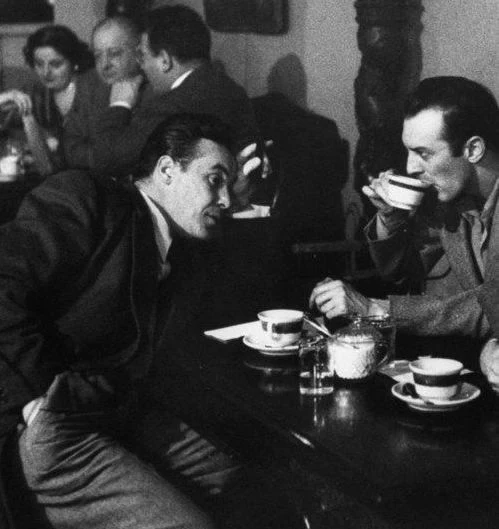by Dr David Graham or Dave as he prefers.
Dave is the Clinical Advisor for Mr. Perfect and is also the Patron for Whiskey’s Wish, a non-profit that supports veterans, first responders, and corrections officers with PTSD. He is a Clinical Lecturer at the University of Sydney and training to become a Psychiatrist and a Psychotherapist. He’s previously had a career with Defence, including tours of Afghanistan and the Middle East, and is technically an art school drop out with a medical degree and a PhD. The greatest joys in his life are his wife and three children.
There are some pretty sobering statistics on men’s mental health.
About half of all men will experience a mental illness in their lifetime, which is more than women. Worryingly, males are more than three times as likely as females to die by suicide, and more than twice as likely to develop substance use disorders.
And yet, over seven in ten men don’t seek help for mental illness.
Think about that. Let those numbers sink in, especially the last one.
It goes without saying that social connection is an important factor in mental health. Not only can social connections help to reduce the impact that stress has on mental health, they also increase help-seeking behaviours.
But seven in ten men don’t seek help for mental illness.
The problem is, not much is known about how men connect and reach out to form social connections. And it’s only been relatively recently since the role of gender in men’s mental health has gained attention. You can’t expect to address these numbers without a good theoretical framework and a solid base of evidence.
A good place to start is to try to understand what masculinity is, and why that gives rise to different patterns of behaviour among men.
Raewyn Connell wrote an immensely influential book called Masculinities. She argues that at any given time, there are multiple masculinities at play. Masculine hegemony – “the patriarchy” – is reinforced by institutional power. It represents the currently accepted male ideal, and it underlies traditional assumptions that men want instrumental relationships with little emphasis on emotional connection.
It goes without saying that it’s important to underline that there’s more than one way to behave as a man: the male stereotype is just a caricature, a figment.
In reality, there’s a rich tapestry of the ways in which men connect with others. In a nice little New Zealand study, four patterns emerged from interviews with men engaged in social connection:
- Independent: Some men reject the need for social support altogether, despite having well-established support networks.
- Compartmentalise relationships: Some men prefer to compartmentalise social relationships by differentiating their relationships with men and women and therefore pursue a hegemonic masculinity
- Difficulty confiding: Some men may have difficulty confiding and reach out only during a crisis.
- Actively reach out: Some men actively strive to reach out and create emotional and supportive relationships, and this can develop over time.
Truth is, there’s a fluidity of movement between these patterns.
The catalyst to preferring to actively seek out emotionally supportive connections is often triggered by significant distressing events. These are times when we need support, but it may be hard to mobilise that support if you’ve not laid the groundwork by actively reaching out. And masculine stereotypes reinforce independence and compartmentalisation.
Importantly, research has found that men’s mental health outcomes are less likely to be dictated by gender, rather more by the social context and social relations. Efforts to challenge the assumption that men don’t need, or even desire, close emotional relationships with other men is clearly an ongoing battle.
One common theme among groups such as Mr. Perfect is that there is no pressure to talk about mental health. Instead, the goal is to foster a community where men can interact with other like-minded individuals around a socially acceptable and normalising task like a barbecue.
Sometimes it’s easier to start with a sausage on a Sunday then see where that goes. Maybe we can bring seven in ten down a little.
Connection runs deep. We’re social creatures who evolved to live in groups. We grow through connectedness. We become who we are through our experiences and our relationships. Connecting people together in a community fosters belonging; loneliness is a lack of belonging.
Community is more than connection. It’s a shared story, a shared stable of signs and symbols and rituals. And so it helps us to create meaning from hardship and an understanding of who we are in context. It’s a place in the world, a safe base.
The neuroscience revolution has taught us a lot. As we grow up in a safe and secure environment filled with rich experiences, different brain structures mature and different aspects of the environment unfold. They nurture each other: engagement in the community establishes and strengthens brain circuits that foster social connectedness, which in turn open up new communities to us.
But that dance can be disrupted and distorted. The question is: how do we accept that and rebuild?
There is a rich diversity to us all, and our community is stronger when that diversity is connected. Constructing and reconstructing a community is the key to recovery. It provides a scaffolding that helps us build the capacity to connect, which in turn helps us to rebuild ourselves.
Let’s get the seven in ten down.
To join the Mr. Perfect Facebook Community click here.
To find a Mr. Perfect BBQ near you click here.



